Foods toxic to Cats | Symptoms and Concern
With regards to your pretty pet cat, you need to ensure she has the ideal and balanced and organic cat food you need to choose, for the nourishment of her healthful requirements.
advertisement
Every once in a while, you might be enticed to give her table pieces and unique treats, yet remember that specific food varieties can be toxic to her.
Here is a glance at probably the most poisonous food for cats.
Cats are adored for their interest. Be that as it may, as the idiom goes, this interest can end seriously assuming they ingest or come into contact with quite a few harmful foods for cats in and around the home.
Cooperation for certain poisons might cause just gentle aggravation and uneasiness. Nonetheless, others can assault and close down significant organs rapidly, so it's essential to save your home safe for your pets.
While cats will quite often be more knowing than canines with regard to eating obscure substances, they can in any case get into things they shouldn't.
advertisement
Regardless of whether your cat eats a poison purposefully, contact can in any case be risky. For example, assuming your pet cat trolls through liquid catalyst on the carport floor and gets it on her paws, she could unintentionally ingest it later as she preps and cleans herself.
However, it's not simply clear harms like radiator fluid that represent a danger. A few normal family items, over-the-counter drugs, and even products of the soil can make your feline debilitated.
You should notice what food are toxic to cats.
advertisement
What foods can cats not eat?
Different foods are the main reason for cat food poisoning.
- Garlic
- Onions
- Alcohol
- Raw eggs
- Raw fish
- Chocolate
- Vegetable
- Green tomatoes
- Citrus fruits
- Dough containing yeast
- Salt
Garlic and Onion
Scallions, garlic, and onions are bad for cats because these can be the reason for the damage to the red blood cells of the cat.
Exposure to a concentrated amount of garlic and onion in form of garlic powder or mixed soup also can be the reason for food poisoning in cats, even raw onions and garlic.
Because onion and garlic contain sulphides and sulfoxides which break the red blood cells and cause anemia, weight loss, lethargy, and intestinal problems in cats.
advertisement
Cat drinking wine and alcohols
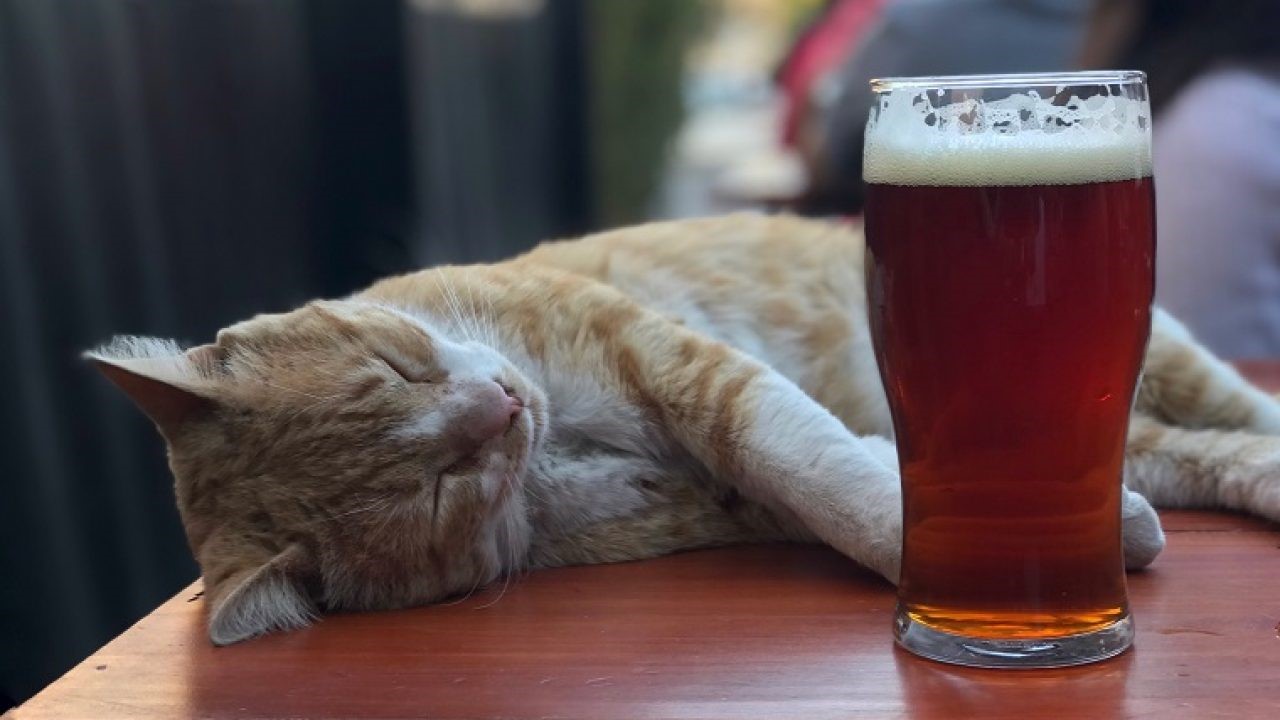
Can cats have wine?
Wines, alcohols, or beers always have hazardous effects on all household pets. Their body temperature falls gradually and eagerness increases when cats have wine.
Cat’s body system doesn’t have any antidotes that are why alcoholic beverages cause severe results.
A tiny amount of alcohol and wine intake can cause deadly poison for cats. Cat drinking wine results in symptoms and diseases.
- Kidney failure
- Liver failure
- Cardiac arrest
- Respiratory problems
- Loss of consciousness
What to do if my cat drank alcohol?
Assuming you notice any of these manifestations, take your feline to the specialist immediately since liquor harming can be deadly.
As a rule, all manifestations of ethanol inebriation in felines are connected with how much liquor is consumed according to body weight.
Regardless of whether the alcoholic liquor intake was minor, the side effects ought not to be neglected.
advertisement
Calling or reaching an expert poison control focus or your neighborhood veterinarian ought to be done quickly.
Cat and owner
Cat proprietors realize that no animal on this planet is hungrier than the cat, and pet cats always need nutritious cat food. there are many types of the best food for indoor cats and also have advantages and disadvantages. A cat owner must know that the healthiest cat food is most important for healthy cat treats.
Your cat will ask persistently for kitten food notwithstanding having a full bowl. They'll yowl and perform as though they're being famished nearly to death regardless of all proof in actuality.
Thus, it's normal for feline owners to need to impart their food to their (obviously starving) cat mates - regardless of whether it is just to get a second's tranquility.
It isn't savvy or prescribed to expect that because a food is great for people or tastes pleasant, your feline will appreciate it or advantage of it however much you do.
advertisement
Human nourishing necessities and calorie prerequisites are tremendously not quite the same as those of your cat diet, also that a few human food varieties can be poisonous to pets.
Can cats eat eggs?
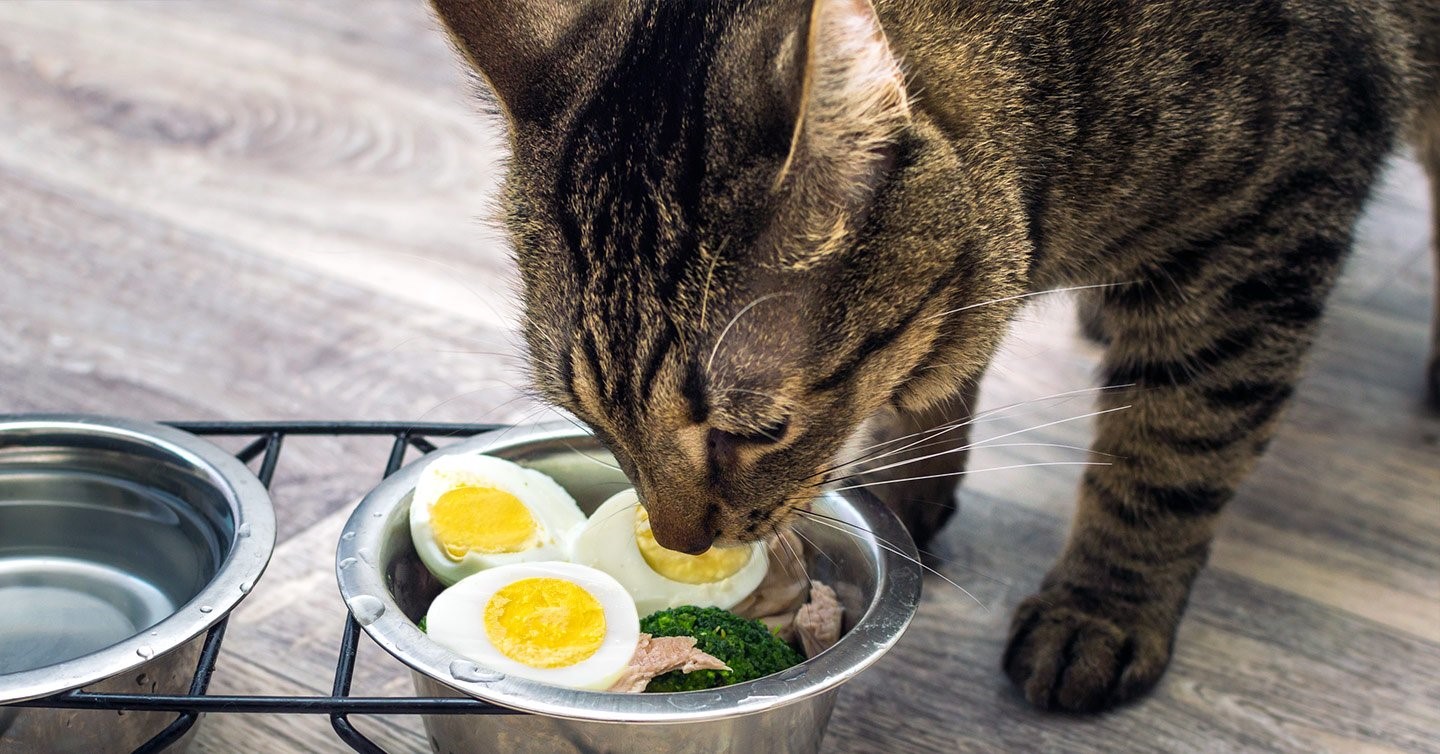
Yes, a cat eats an egg! Eggs are a decent wellspring of protein and fats for your kitty, yet on the off chance that your feline is as of now getting a total and adjusted diet, it's not important to take care of your pet cat.
As commit carnivores, cats flourish with creature protein, so eggs can be a solid treat that is simple to process for your cat.
While nutritious, don't furnish your feline with complete nourishment, but raw egg yolk for cats is best. Eggs should never be the essential food hotspot for cats.
Normal cats necessities around 160 to 200 calories every day, and keeping in mind that a solitary entire egg is around 80 calories, you can perceive how rapidly the calories can accumulate for your kitty.
Eggs ought to never make up more than 10 to 20 % of your cat day by day sustenance. It's fundamental to realize how much egg is proper for a feline.
advertisement
While a solitary egg is a generally low-calorie, high-protein nibble for a human, the high-fat substance of eggs can make your feline put on weight if the right parcels are not stuck to.
Whenever you acquaint another food with your feline's eating routine, it's smart to begin little and check whether there are any unfavorable responses or impacts.
While food sensitivities in felines are sensibly intriguing, eggs are the most inescapable food allergens for cats.
Can cats eat egg yolk?
The greater part of the fat in eggs is housed in the yolk, so it's smart to restrict how many yolks you provide for your feline.
Counting a tad of yolk can't do any harm, yet it's ideal to be moderate.
Assuming your cat is overweight or has kidney issues, it's likely best to remember that egg yolk for cats is not included in the eating routine by any means otherwise excess eggs may cause the cat food poisoning.
Is chocolate bad for cats?
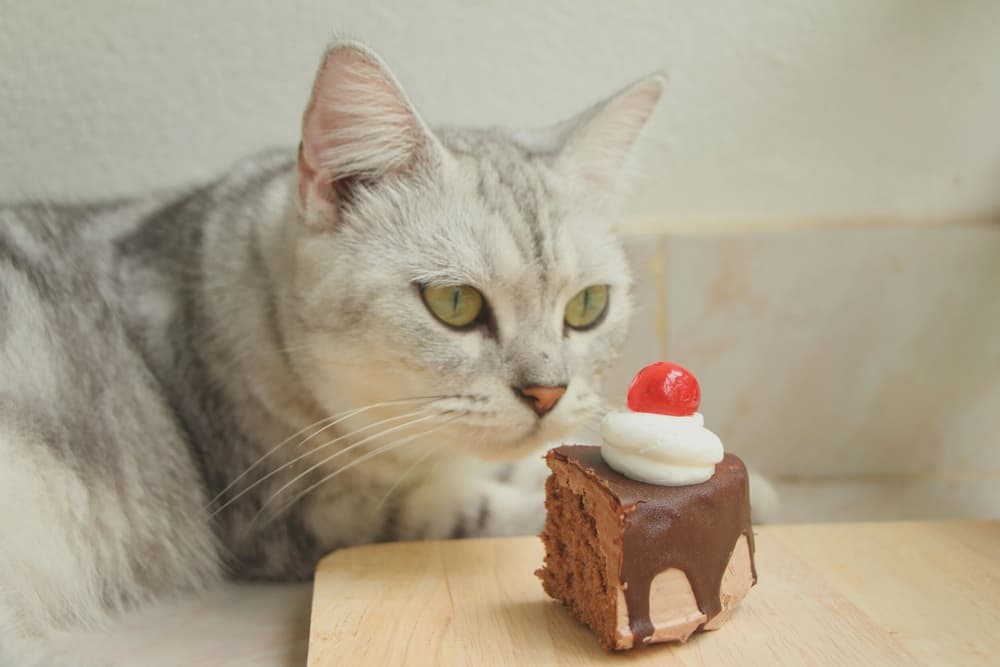
Chocolate can be deadly for cats.
Even though most cats will not eat it all alone, they can be persuaded to eat it by the cat's owner and other people who think they are giving the feline a treat without knowing that chocolate is a toxic food for dogs and cats.
advertisement
The harmful specialist in chocolate is bromine. It is available in a wide range of chocolate, even white chocolate toxic to cats.
Can cats eat vegetables?
Every cat owner thinks that vegetables are good for the cat.
All vegetables are human food, like pets, the cat has a carnivore system, so vegetables are not part of a cat’s digestive system.
There is a natural sugar found in all vegetables so cats may suffer from diabetic issues.
But yes, your cat can eat peas and carrots only on the instruction of your pet cat’s Vet.
advertisement
What are the symptoms of cat food poisoning?
Food poisoning symptoms may vary according to the health, age, and weight of your cat. It also depends upon the food intake quantity and type.
- Lethargy
- Weakness
- Breathing difficulty
- Diarrhea
- Vomiting
- Thrust increased
- Frequent or infrequent urinating
- Jaundice
Cat food poisoning treatment
If you get to know that your pet cat eats some toxic or unhealthy that creates problems in health then you should keep away other pets from problematic food and call your Vet.
- Don’t try to make your cat vomit.
- Try not to give your pet cat a home cure except if taught.
- Know how to deal with acids, salts, and oil-based goods.


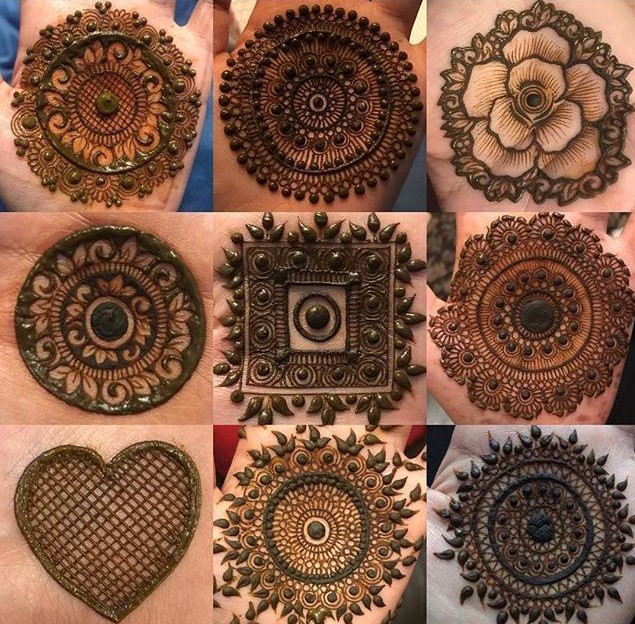



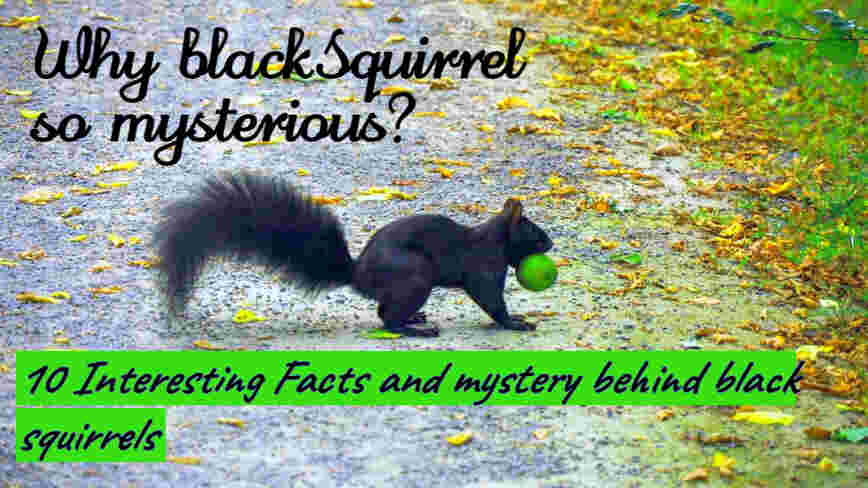
Admin – Administrator
Founder & Administrator of this website. If you want my services please CONTACT ME.